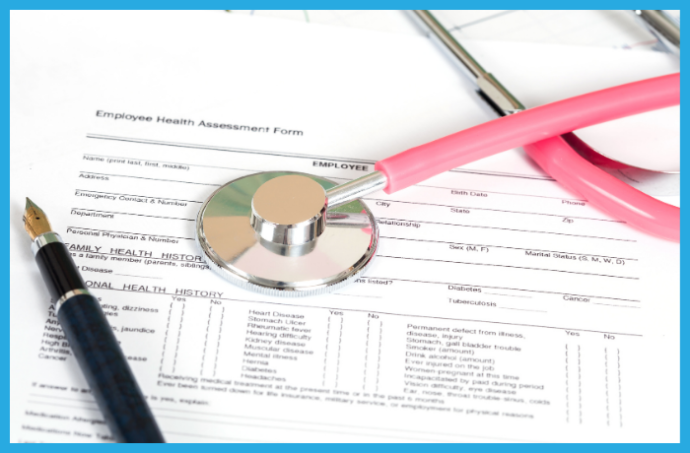
The Colorado Department of Labor and Employment (“CDLE”) published new guidance that impacts every Colorado employer.
Further, the federal Families First Coronavirus Response Act (“FFCRA”) tax credits have been extended for employers. This update outlines important employment law updates applicable to all Colorado employers as of January 1, 2021.
CLDE Issues HFWA Guidance
In accordance with the new guidance from the CDLE all employers, regardless of size, must immediately provide employees with up to 80 hours* of supplemental paid leave for the COVID-19 public health emergency under the Healthy Families and Workplaces Act (“HFWA”), regardless of whether employees used any emergency paid sick leave under FFCRA last year.
As detailed in our prior article, the HFWA generally requires that effective January 1, 2021 for employers with 16 or more employees and effective January 1, 2022 for employers with fewer than 16 employees, all employers in Colorado must provide employees with paid sick leave, which accrues at a minimum rate of one hour of paid sick leave for every 30 hours worked, up to a maximum of 48 hours of paid sick leave per year. Notably, the HFWA also requires that “on the date a public health emergency is declared,” each employee’s paid sick leave must be automatically supplemented as necessary to ensure that each employee has 80 hours* of paid sick leave available.
The CLDE recently published Interpretive Notice & Formal Opinion #6C which contains two important interpretations regarding the current public health emergency due to the COVID-19 pandemic that drastically effect all Colorado employers. First, despite that the COVID-19 public health emergency was declared in March 2020, employers must provide their employees with up to 80 hours* of supplemental paid sick leave as of January 1, 2021 Second, all employers, regardless of size, must provide supplemental sick leave (also known as pandemic or public health emergency leave) for the COVID-19 public health emergency. While employers with fewer than 16 employees are still exempt (until January 1, 2022) from the regular sick leave provisions of the HFWA, such exemption does not apply to the public health emergency supplemental sick leave. Accordingly, all Colorado employers must make supplemental sick leave available to all employees immediately for the ongoing COVID-19 public health emergency as of January 1, 2021. This is true even if the employee took leave under FFCRA in 2020.
*As we have previously advised, employees who regularly work 40 or more hours a week will receive up to 80 hours of supplemental paid sick leave. Employees who work less than 40 hours a week will receive up to the greater amount of the average number of hours the employee works over 2 weeks or the amount of time the employee is scheduled to work over a 2-week period. Each employee’s accrued and unused paid sick leave can count towards the supplemental paid sick leave requirement, but employees must be allowed to use supplemental paid sick leave first prior to accrued paid sick leave when the leave is taken for any of the reasons outlined below:
- Needing to self-isolate due to either being diagnosed with, or having symptoms of, COVID-19;
- Seeking a diagnosis, treatment, or care (including preventative care) for COVID-19;
- Being excluded from work by a government health official, or by an employer, due to the employee having exposure to, or symptoms of COVID-19 (whether or not they are actually diagnosed with COVID-19);
- Being unable to work due to a health condition that may increase susceptibility or risk to COVID-19; or
- Caring for a child or other family member in category 1, 2, or 3, or whose school, child care provider, or other care provider is unavailable, closed, or providing remote instruction due to the COVID-19 public health emergency.
FFCRA Tax Credits Extended
Additionally, the federal Consolidated Appropriations Act, 2021 extended the FFCRA employer tax credits through March 31, 2021. The FFCRA tax credits are available to employers with fewer than 500 employees who provide qualified sick leave wages or qualified family leave wages to employees who are unable to work for reasons related to COVID-19.
Qualified sick leave wages are wages or compensation paid to an employee who is unable to work (or telework) because of the employee’s personal health status (i.e. they are under quarantine or have COVID-19 symptoms are seeking a medical diagnosis) or the employee’s need to care for others (i.e. a person with COVID-19 or a child whose place of school or care is unavailable). Employers may claim up to $511 per day, but no more than $5,110 in the aggregate per employee, for qualified sick leave wage tax credits.
Qualified family leave wages are wages or compensation paid to an employee who is unable to work (or telework) due to the need to care for their child whose place of care is closed for reasons related to COVID-19. Employers may claim up to $200 per day, but no more than $2,000 in the aggregate per employee, for qualified family leave wage tax credits.
These tax credits are applied against the employer’s Social Security taxes. If an employer’s costs for qualified leaves exceeds the taxes owed, the employer will receive a reimbursement.
Interplay of HFWA and FFCRA Tax Credits
While not a perfect match, there is significant overlap between the permitted purposes for an employee to use supplemental sick leave under the HFWA and the availability of the FFCRA tax credits. Employers seeking to take advantage of the FFCRA tax credits should carefully track and record all supplemental sick leave taken related to COVID-19 and maintain the necessary documentation for such tax credit, without overstepping the HFWA’s limitations on seeking such documentation.
What is written here is intended as general information and is not to be construed as legal advice. If legal advice is needed, you should consult an attorney.
For more information contact employment law attorney Michelle B. Ferguson at 303-628-3658.